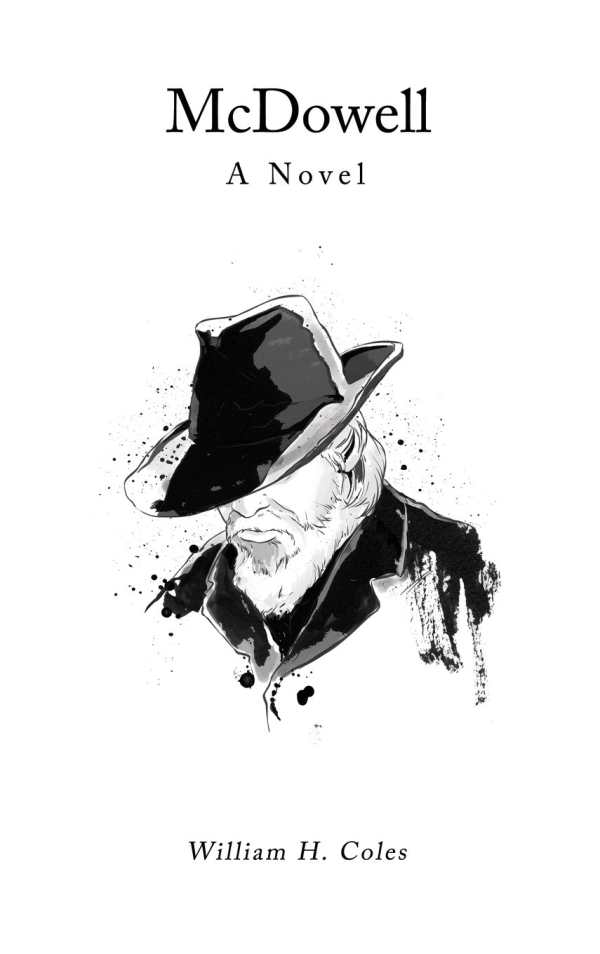McDowell
McDowell is a moral tale with a touch of modern ambiguity.
William H. Coles’s McDowell draws from headline issues and a contemporary American setting to tell an unabashedly allegorical tale.
Prominent physician Hiram McDowell has given up the hands-on nuisance of treating patients, preferring instead to pursue the more lucrative aspects of medicine: patenting devices, sitting on prestigious boards, and moving into the heady spheres of government appointments. On paper, his CV glows with achievement. On the personal front, not so much. In relationships with family and colleagues, McDowell is relentlessly callous, backstabbing, arrogant, and condescending.
The novel’s first half is an elaboration of McDowell’s many sociopathic traits. In the second half, McDowell’s accumulated karma catches up with him and, in allegorical tradition, makes him a changed man. Or is he?
The book divides evenly between the two parts. In addition to switching from the old McDowell to new, the halves vary in action and focus. In the first half, numerous secondary characters and their story lines are introduced. The most notable of these are Paige Sterling, a past-her-peak TV reporter who’s fighting to hold her position among a welter of younger competitors, and McDowell’s three children by his first wife—Ann, Sophie, and Billie.
The second half switches between Fugitive-like episodes of McDowell on the run after breaking out of prison, scenes of Paige and Sophie collaborating on a McDowell biography, and Paige’s meetings with a skip tracer bent on tracking McDowell down.
As with most allegories, the events of the first section are overblown, ricocheting back and forth on topics including the ethics of rescuing seemingly doomed mountain climbers, the morality of turning lax medical trials into glowing reports, school shootings, and euthanasia. Almost every action seems driven by the need to reaffirm McDowell’s basic rottenness; this feels repetitious and blunt-edged, as if the plot serves only this message. In the second half, McDowell’s first interaction with the world of ordinary folk is the most memorable, while subsequent scenes seem like filler to get to the final encounter.
McDowell’s character is painted with heavy brushstrokes. He emerges as more of a symbol than a believable character. Secondary characters are more interesting and accessible, including Paige Sterling, who is forced to mine the cheap gold of sensationalism to keep her media job, and McDowell’s daughter Sophie, who emerges as the family’s ultimate survivor.
One of the most intriguing aspects of the book is the persistent question of whether McDowell does actually evolve. His last action in the first half of the book is morally ambiguous. A voice-over style narrative summation explains that he was indicted, convicted, sent to prison, and staged an escape after serving less than a year. The opening section of the second half finds a fundamentally different McDowell on the run. Whatever deep change occurred came during his glossed-over arrest, trial, and prison experience, and it remains unclear how much he has really been transformed.
McDowell is a moral tale with a touch of modern ambiguity.
Reviewed by
Susan Waggoner
Disclosure: This article is not an endorsement, but a review. The publisher of this book provided free copies of the book and paid a small fee to have their book reviewed by a professional reviewer. Foreword Reviews and Clarion Reviews make no guarantee that the publisher will receive a positive review. Foreword Magazine, Inc. is disclosing this in accordance with the Federal Trade Commission’s 16 CFR, Part 255.

